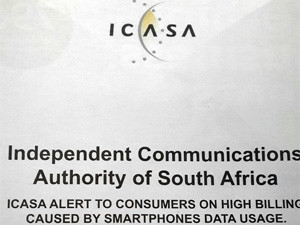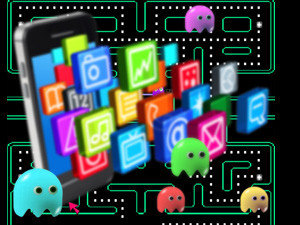
While the advent of smartphones in SA has opened up worlds some may never have imagined possible, by putting Internet connectivity in more hands than ever before, it is also responsible for bills beyond many consumers' budgets.
The Independent Communications Authority of SA's (ICASA's) full-page alert in the Mail & Guardian newspaper this week lends credence to the fact that - as beneficial as they are - smartphones are burning holes in pockets, as a lack of understanding and vigilance prevails.
ICASA's advert, headed "ICASA alert to consumers on high billing caused by smartphones data usage", states the authority has been inundated with complaints around high and wrongful billing by mobile operators recently. It goes on to list the reasons consumers are encountering bill shock - evidencing it is not the mobile operators, but rather a lack of understanding on the part of consumers that is the problem.
Worsening epidemic
World Wide Worx MD Arthur Goldstuck says while this trend is relatively new in terms of the scale of complaints the industry is seeing, it was entirely anticipated - and it is only going to get worse. "The reason for this is the rapid move among cellphone users in SA from feature phones to smartphones."
He notes that - no matter which smartphone people switch to - they are required to register with an online service. "If you go with Android you are required to register with Google; if you go with iPhone you have to register with Apple; and if you have a BlackBerry you have to register with BlackBerry. Even for those who choose to go with a Windows phone - they have to register with Microsoft essentially to use the device."
Where data charges start taking hold, says Goldstuck, is that the first thing that happens is the smartphone will check for operating system (OS) updates, and this can happen without the user knowing. "This defines a smartphone - the fact that an OS can be updated - and yet almost no one realises. There are WiFi and device settings [that change the default automatic update], but the average person does not know about this and the average person selling the device does not explain it."
He says this year SA will see 5.5 million smartphones sold - up to half of which will be in the hands of first-time smartphone users. "This is continually rising and next year the number of bill shock complaints will be even bigger, so this gives you an idea of how the scale of issues is going to intensify."
This is what ICASA and the market are seeing, says Goldstuck - and what more and more consumers are experiencing.
Take responsibility
ICASA lists the main reasons consumers are increasingly being faced with bill shock as high data usage from downloading applications, international roaming, inability to switch off smartphones' data usage portals, a lack of understanding of WiFi usage instead of contracted data - and even a lack of understanding between megabytes and gigabytes.

Tech analyst Liron Segev, from TheTechieGuy.com, says the market has shifted, causing a wave of people just coming into the smartphone market or off BlackBerry to other platforms. And the users shifting platform are bringing their old habits along, he says.
"In SA, many come from a BlackBerry background, where all they knew was the R59 unlimited Internet service. It is typically those who are moving to other platforms that are getting a major shock when comparing their BlackBerry bills to their Android bills."
Segev notes that the world at large has also evolved such that it is no longer the "hard core geeks" who use apps and services other than e-mail and instant messaging on their smartphones.
There is undoubtedly a lack of understanding around what smartphones do and how this affects data, in turn, affecting cellphone bills. However, he notes, as SA moves away from feature phones towards smartphones, the days of blaming mobile operators for sky-high bills are over.
"The networks could always do more, but ultimately consumers need to take responsibility. The notion that operators are inflating bills won't fly anymore."
Segev says regular phone updates are the biggest culprits of data consumption, and Goldstuck adds GPS, music and Internet radio, video and - increasingly so of late - Web browsing as data gluttons.
"Web browsing is becoming big in SA. Many visit data-intensive sites with graphics, videos and interactive functionality, and don't realise how much data this chews." And many do not have the data-friendly mobi alternatives, he concludes.
Share